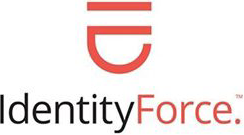Think because you regularly check your credit scores and run encryption software on your computer that you aren’t at risk of identity theft? Think again!
No matter what precautions you take, no one can prevent identity theft from taking place. This is even true if you pay for an identity theft protection plan. The fact is, whether young or old, everyone is at risk, but can you recognize the four signs of identity theft?
- Strange charges on your credit accounts
The easiest way to identify if identity theft has taken place is to take a look at your statements each month. Review your purchases and make sure that they are accurate. The most common form of identity theft is credit card fraud, and it’s often the way that an identity thief will test your accounts.
You should take a look at your bank accounts as well. It’s easier than ever for thieves to use your hard earned cash by obtaining your debit card number.
- Change in your credit score
Most people understand the importance of keeping track of their credit scores, but not everyone takes the time to track them down. You are entitled to a free credit report from each of the three major credit bureaus each year. If you pay for an identity theft protection plan, you may have access to your score, free of charge, multiple times a year.
If you suspect that your credit has been compromised, it’s important to call each of the three credit bureaus. They can place flags on your accounts which prevents the thief from continuing to use your information to take out new lines of credit in your name.
- Personal information on your accounts is inaccurate
As you dive into the information on your credit scores, it is also important to double check your personal information. In an attempt to use your credit accounts for as long as possible, thieves may redirect your mail to another address so that the likelihood of discovering strange charges is reduced.
Thieves may also change personal information on accounts to make the account holder seem older, especially if they’re using your child’s personal information. Using multiple addresses and contact information also makes it difficult to track down the person responsible.
- Your credit cards are declined
If you haven’t been keeping track of your credit scores, your account information, or looking at your monthly statements, the final clue is that your credit cards start getting declined.
As a thief tests the waters and discovers that you aren’t keeping tabs on your accounts, they will likely spend until your cards are maxed out. Then, when you go to use your credit card again, you’ll discover you can’t. At this point, you’ll definitely want to look into your credit score, and you’ll want to take a close look at the information listed on those accounts. You may even discover that new lines of credit have been opened in your name that have to be dealt with.
Identifying identity theft early is absolutely essential to restoring your good name. Unfortunately, there are many more ways for thieves to use your information. To make sure you’re alerted to all types of identity theft quickly, you may want to sign up for an identity theft protection plan.
Suspect that your identity has been stolen? Learn what to do next!


